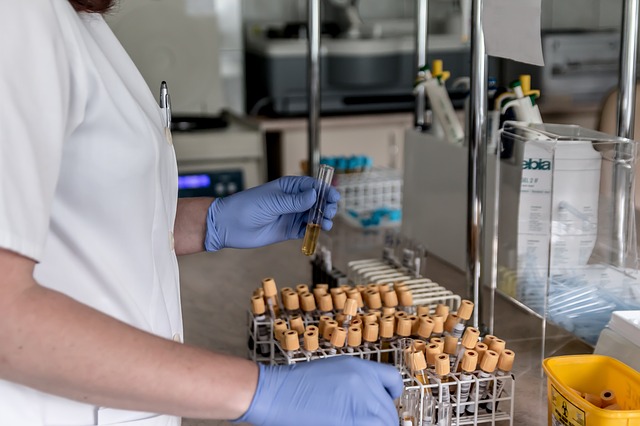
US Centers for Disease Control and Prevention
The Centers for Disease Control and Prevention (CDC) today announced first-year funding awards of $215 million in a 5-year, $1.1 billion investment into three national programs to prevent and control cancer. Investments will make important progress on the President Biden’s priority of ending cancer as we know it as part of the Cancer Moonshot and his Unity Agenda for the nation
Eighty-six unique recipients from state, local, tribal, and territorial public health organizations and academic institutions received funding, representing all states, the District of Columbia, 18 tribal organizations, five U.S. territories, and three freely associated states. See information on awards here.
This funding builds on investments CDC has made in a comprehensive, coordinated cancer prevention and control portfolio for more than 30 years. Funded programs will demonstrate how proven strategies advance health equity and build capacity in cancer prevention and control. Outcomes include improving the provision of clinical preventive services; facilitating planning among partners to promote evidence-based strategies in communities; and improving cancer surveillance.
“Today we know cancer as a disease that we often diagnose too late, but thankfully we have a few ways to prevent it and tackle stark inequities across races, regions, and resources,” said Health and Human Services Secretary Xavier Becerra. “This funding is a critical investment in support of President Biden’s Cancer Moonshot initiative and our efforts to help ensure that everyone in the United States equitably benefits from the tools we have to detect and diagnose cancer.”

“This funding is an important part of our strategy to support communities in improving chronic disease outcomes among people experiencing health disparities and inequities,” said Karen Hacker, MD, MPH, director of CDC’s National Center for Chronic Disease Prevention and Health Promotion. “Cancer prevention and control is an urgent public health issue, as cancer remains the second leading cause of death in the United States with more than 1,600 people dying of cancer every day. We can do more together to save lives and make this disease history.”
This new round of funding supports progress toward CDC’s cancer prevention and control goals to reduce preventable cancers; ensure all people get the right screening at the right time for the best outcomes; and improve health and wellness for cancer survivors leading to longer, healthier lives.
This will be accomplished by funding three national cancer programs:
- The National Breast and Cervical Cancer Early Detection Program (NBCCEDP) was federally mandated in 1990. It supports breast and cervical cancer screening services for women with lower incomes who are uninsured or underinsured as well as the implementation of evidence-based interventions to increase screening and improve screening practices in the clinics that serve them.
- The National Comprehensive Cancer Control Program (NCCCP) was established in 1998. It supports cancer coalitions that plan and implement evidence-based strategies in their comprehensive cancer control plans.
- The National Program of Cancer Registries (NPCR) was federally mandated in 1992. It supports population-based cancer registries to collect cancer surveillance data to measure progress, drive action, prevent cancers, and improve cancer treatment for all people.

Recipients have developed plans for how they will use these funds to achieve these goals and advance health equity in cancer prevention and control through breast and cervical cancer screening services, comprehensive cancer control plan implementation by coalitions, and cancer data collection to monitor and report cancer burden.
“Our mission is for all people to be free of cancer—and to do that we must support coordinated, comprehensive cancer control efforts,” said Lisa C. Richardson, MD, MPH, Director of CDC’s Division of Cancer Prevention and Control. “This funding helps organizations work together to take action, address preventable health disparities, and close gaps in cancer care access, quality, and outcomes.”
For more than 30 years, CDC has led efforts to prevent and find cancers early. CDC’s Division of Cancer Prevention and Control (DCPC) is dedicated to helping all people reduce their risk of cancer and get the right screening tests at the right time. DCPC leads nationwide efforts to reduce preventable cancers and improve cancer survivors’ health and well-being.
President Biden has reignited the Cancer Moonshot and set new national goals: if we work together, we can cut the death rate from cancer by at least 50% over the next 25 years, and improve the experience of people and their families living with and surviving cancer.
###
U.S. DEPARTMENT OF HEALTH AND HUMAN SERVICES
CDC works 24/7 protecting America’s health, safety and security. Whether disease start at home or abroad, are curable or preventable, chronic or acute, or from human activity or deliberate attack, CDC responds to America’s most pressing health threats. CDC is headquartered in Atlanta and has experts located throughout the United States and the world.
This article was originally published on CDC.Gov, you can read the original article here.









